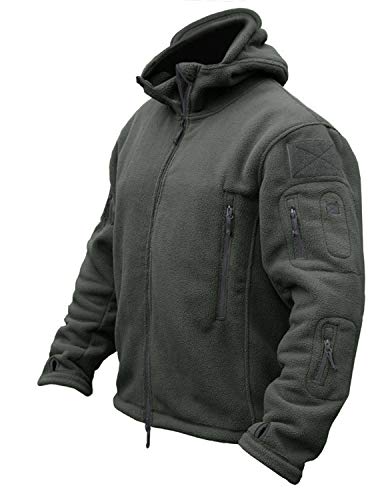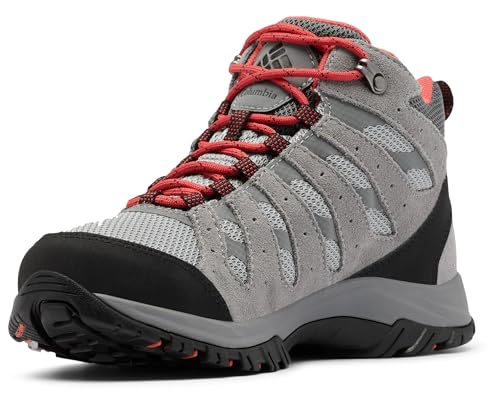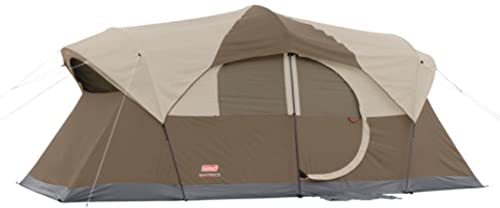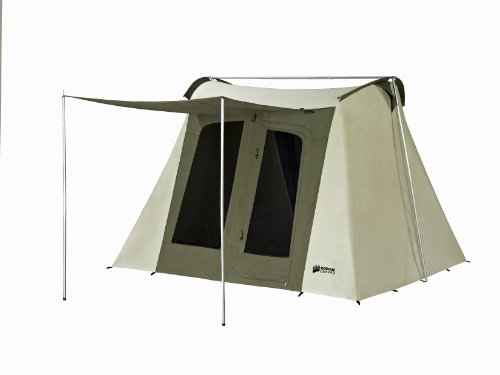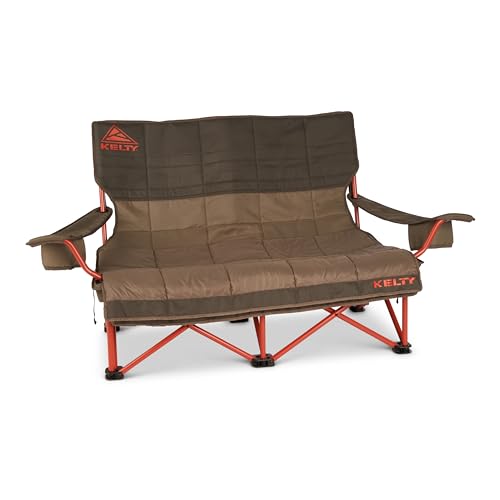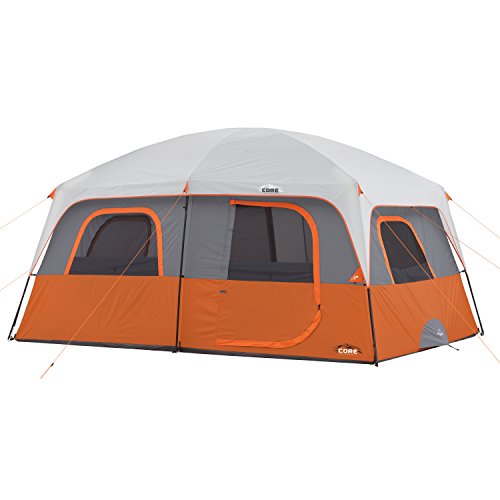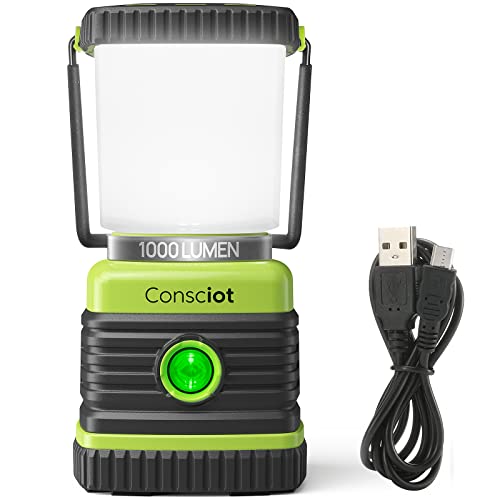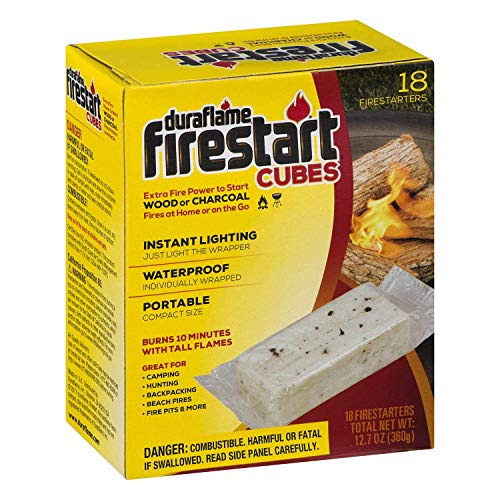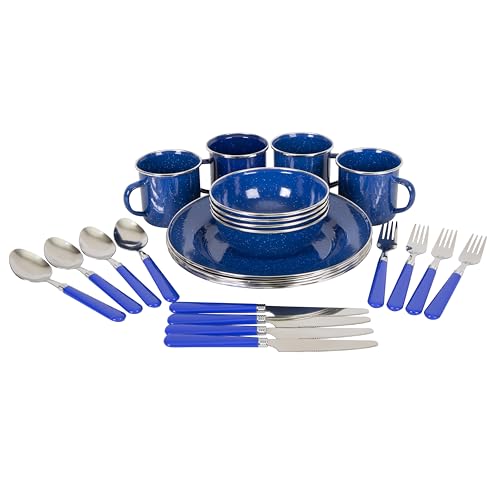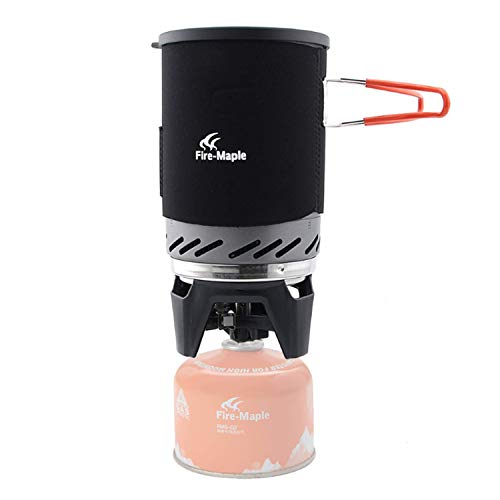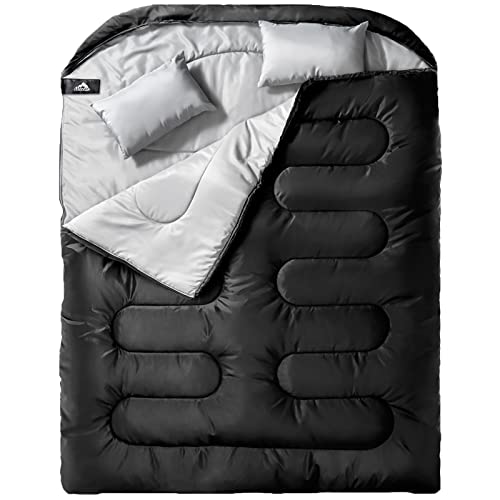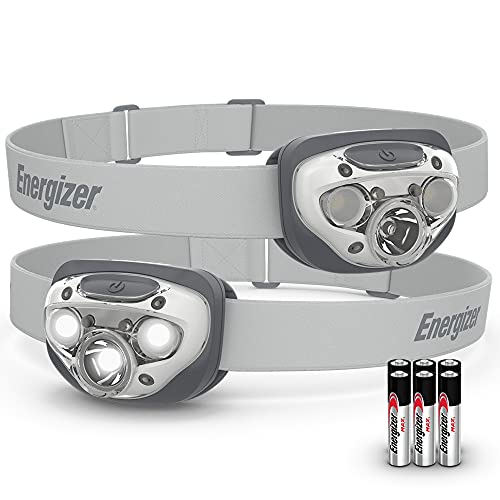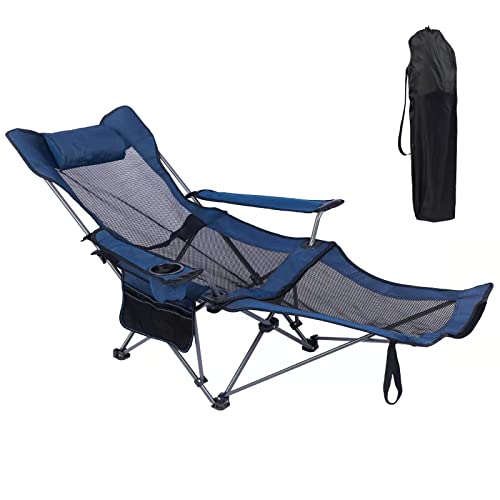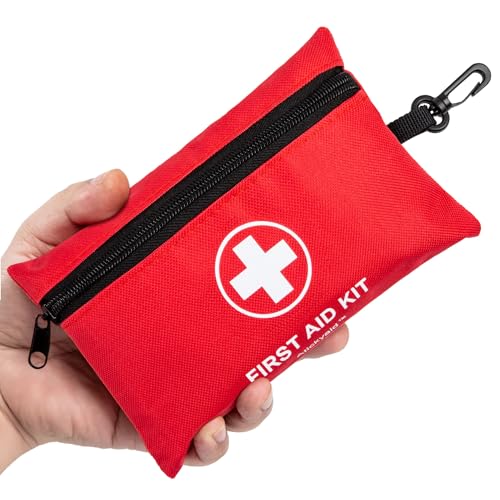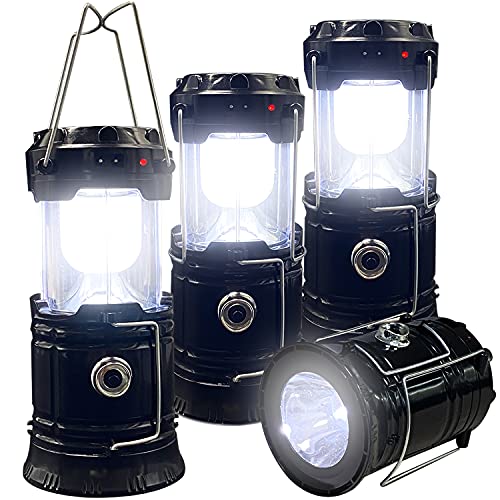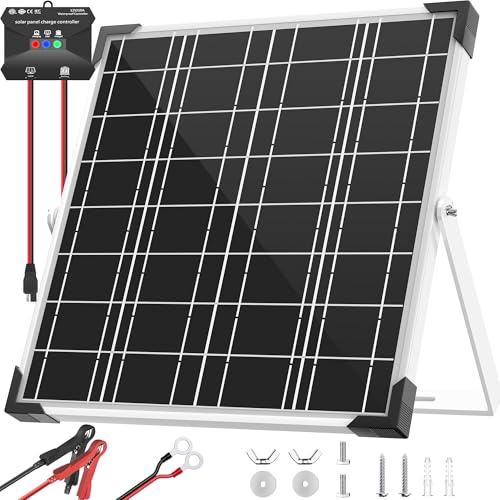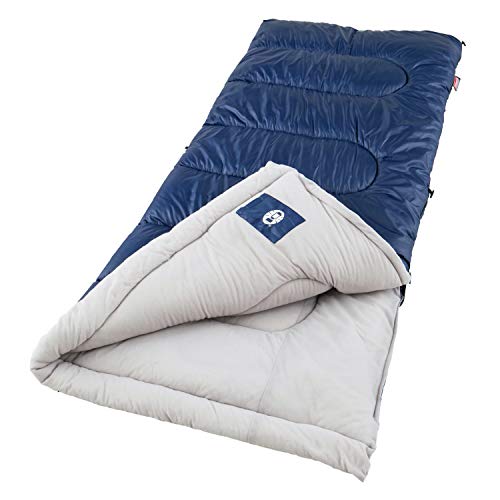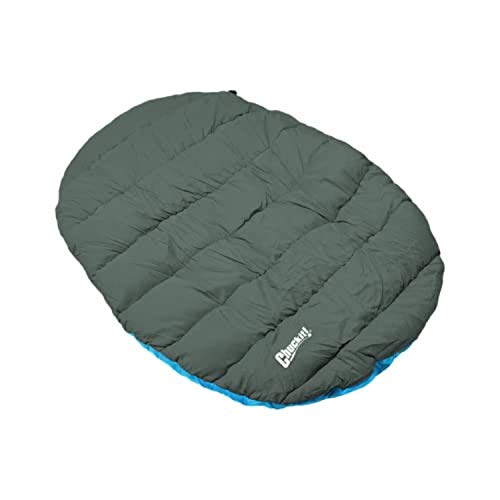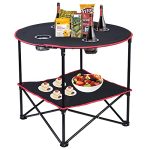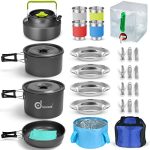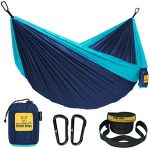As more people seek refuge in the great outdoors, it’s vital to remember that our adventures can impact the natural world. Eco-friendly camping practices not only help preserve these stunning landscapes but also enhance our overall experience. Imagine waking up to the serenity of a pristine forest, knowing your choices have helped keep it that way. Embracing sustainable gear means aligning your love for nature with your actions, creating a harmonious relationship between you and the environment.
Using eco-friendly accessories while camping can transform your trip into a truly sustainable adventure. From reducing waste to opting for materials that harm less than traditional counterparts, every choice makes a difference. Imagine cooking on efficient stoves or using biodegradable toiletries—all designed to minimize your ecological footprint while maximizing your enjoyment of the wilderness. In this article, we will explore seven must-have eco-friendly camping accessories that will elevate your outdoor experience and inspire others to do the same. Let’s dive in!







![Campings Light [4 Pack] Doukey Portable Camping Lantern Bulb LED Tent Lanterns Emergency Light Camping Essentials Tent Accessories LED Lantern for Backpacking Camping Hiking Hurricane Outage](https://m.media-amazon.com/images/I/41RgSzKMbpL._SS520_.jpg)


Solar-Powered Gadgets
In a world increasingly aware of energy consumption, solar-powered gadgets are shining bright as essential camping tools. From chargers that keep your devices powered up to lights that illuminate your surroundings when the sun sets, these eco-friendly innovations harness the incredible power of the sun without placing additional stress on our planet. Whether you’re capturing stunning scenery or setting up camp after dark, solar-powered accessories provide reliable functionality that seamlessly aligns with sustainable practices.
One of the most convenient features of solar-powered products is their ability to store energy for later use. For instance, many modern solar chargers are equipped with built-in batteries that can charge multiple devices like smartphones and cameras efficiently throughout the day. As such, you can soak in the sunshine while ensuring you stay connected without draining precious battery resources. Additionally, these gadgets often boast weather-resistant designs, making them ideal companions for outdoor adventures in various climates—whether it’s a drizzly afternoon hike or a sunny beachside retreat.
Several brands have made significant strides in developing high-quality solar-powered tech for campers. Big names like Goal Zero and Anker lead the way with durable solar panels and portable power banks designed specifically for outdoor usage. Their innovative solutions not only promote clean energy but also deliver practicality and efficiency. With easy setup processes—some even folding into compact sizes—the convenience they offer is as commendable as their environmentally conscious manufacturing practices. By choosing these cutting-edge supplies, you’re investing not just in enhanced camping experiences but also in preserving nature’s beauty for future generations.
As you prepare for your next adventure into the wild, consider integrating some of these amazing solar-powered gadgets into your gear lineup. By doing so, you’ll enjoy a richer outdoor experience while reducing your carbon footprint—a rewarding journey toward sustainable living!
Reusable Camping Ware
When it comes to camping, making the choice to use reusable ware over disposable items can significantly reduce your environmental footprint. Single-use plates, cups, and utensils may seem convenient for a weekend getaway, but they contribute to landfill waste that can linger for centuries. By opting for durable, reusable camping ware, you not only practice sustainable habits but also enhance your outdoor experience. Imagine enjoying your meal around the campfire with friends while knowing you’re doing your part in preserving nature—it’s an act of love towards the great outdoors.
The ideal materials for camping ware center around durability and safety. Stainless steel is a standout option; it’s robust enough to withstand rough trails yet lightweight for easy transportation. Beyond its strength, stainless steel does not leach chemicals into food and is easier to clean than some other materials. Additionally, silicone and BPA-free plastic are excellent alternatives for those seeking versatility in their dinnerware options. When considering cookware, cast iron offers both longevity and high performance in cooking meals that require even heat distribution.
Maintaining cleanliness and functionality of your reusable items doesn’t have to be burdensome either. After each meal, take a moment to rinse off any leftovers while still at the site—this will save water during clean-up later. Opting for nesting sets can help minimize space in your pack while keeping all pieces together until needed. Creating a dedicated storage section within your gear bag ensures everything stays organized and accessible without rummaging through cluttered compartments. A quick scrub with eco-friendly soap when you return home wraps up the cycle of care for your versatile camping essentials.
Ultimately, choosing reusable camping ware reflects a commitment to eco-conscious living that resonates far beyond just one trip into nature—it encourages a ripple effect among fellow campers. Sharing insights regarding biodegradable products or inspiring others to ditch disposables strengthens the collective movement toward sustainability within our beloved camping community. Join hands with mother earth by embracing accessories that stand the test of time as you embark on new adventures beneath the stars!
Biodegradable Toiletries
When venturing into the great outdoors, the last thing you want to do is compromise the natural beauty surrounding you. Traditional toiletries often contain harsh chemicals that can be harmful to ecosystems when washed away into local waterways. Ingredients like sulfates and parabens not only impact water quality but also pose risks to aquatic life. By choosing biodegradable toiletries, campers can minimize their impact on nature while still maintaining personal hygiene with eco-friendly confidence.
Biodegradable soaps, shampoos, and wipes are designed to break down more quickly than their conventional counterparts, making them far gentler on the environment. Products such as Dr. Bronner’s Castile Soap offer versatility and effectiveness without leaving a harmful residue behind. Likewise, biodegradable wipes from brands like The Honest Company ensure cleanliness without contributing to landfill waste or polluting streams and rivers during your outdoor adventures. Opting for these kinds of products allows you to enjoy your camping experience without compromising your commitment to sustainability.
The environmental benefits of using eco-friendly personal care products extend beyond just cleaning yourself; they encompass a broader respect for our planet. Biodegradable toiletries help reduce plastic pollution by encouraging consumers to utilize recyclable or compostable packaging options alongside refillable containers. This integrated approach promotes a sustainable lifestyle both in and out of the wilderness while ensuring we leave no trace during our travels. Educating fellow campers about these choices has the power to inspire collective action, leading us toward cleaner, greener camping practices.
Ultimately, embracing biodegradable toiletries harnesses convenience without sacrificing environmental responsibility—making them an essential addition to any eco-conscious camper’s gear checklist. Whether you’re washing up at the campsite or showering after a long hike, reminding ourselves that every choice impacts our surroundings strengthens our bond with nature as well as our resolve to protect its pristine landscapes for generations to come.
Eco-Friendly Sleeping Gear
When it comes to camping, a good night’s sleep is crucial for recharging and enjoying the great outdoors. Choosing eco-friendly sleeping gear not only enhances your comfort but also supports sustainable practices that protect our planet. Look for sleeping bags and pads made from materials such as organic cotton and recycled fibers, which are not only gentler on the environment but also provide excellent insulation properties. For example, sleeping bags filled with recycled synthetic materials can keep you warm on chilly nights while being lighter on waste.
Comfort shouldn’t be sacrificed in the name of sustainability; instead, they should go hand in hand. Quality insulation is essential for maintaining warmth regardless of the environmental challenges you face during your adventures. By selecting products that prioritize temperature control and moisture-wicking abilities without relying on harmful chemicals, you’re making a responsible choice for both personal comfort and ecological conservation. Additionally, some modern brands have developed advanced technologies to create heat-retaining materials from recycled plastic bottles—truly impressive innovations that marry performance with eco-consciousness.
Several brands have taken significant strides towards producing sustainable sleeping gear that reflects their commitment to environmental responsibility. Companies like Sea to Summit offer sleeping bags made from 100% recycled polyester fabric, coupled with down insulation sourced ethically and virtually free from harmful chemicals. Another standout is Big Agnes, whose line includes insulated air mattresses crafted from post-consumer recycled fabrics combined with their durable designs. These brands exemplify how investing in eco-friendly gear doesn’t mean compromising quality—it enhances your experience while demonstrating care for nature.
By opting for eco-friendly sleeping gear, you’re making a deliberate choice to support sustainable practices within the outdoor industry while ensuring you remain cozy during nights under the stars. As an environmentally-conscious camper or outdoor enthusiast, selecting products that reflect these values transforms each adventure into an opportunity to enjoy nature responsibly—all while inspiring those around you to join the movement toward preservation rather than destruction.









![Campings Light [4 Pack] Doukey Portable Camping Lantern Bulb LED Tent Lanterns Emergency Light Camping Essentials Tent Accessories LED Lantern for Backpacking Camping Hiking Hurricane Outage](https://m.media-amazon.com/images/I/41RgSzKMbpL._SS520_.jpg)
Recycled Backpack Options
When it comes to eco-friendly camping gear, choosing a backpack made from recycled materials is a game changer. These backpacks not only help reduce waste in our landfills but also contribute to minimizing the environmental impact associated with producing new materials. Many of these packs are crafted from post-consumer plastics—like recycled water bottles—and repurposed textiles, giving second life to materials that would otherwise be discarded. The result? A durable and stylish accessory that champions sustainability without compromising on quality or functionality.
Comfort and practicality are vital attributes for any camping backpack, especially when considering long hikes or extended backcountry adventures. Recycled backpacks typically feature ergonomic designs, padded straps, and ample storage options tailored for wilderness exploration. For instance, brands like Patagonia and The North Face have effectively blended sustainability with performance by creating packs that offer hydration reservoirs, lightweight frames, and multiple compartments to keep your gear organized—all while being environmentally conscious. Whether you’re trekking through forests or scaling rocky terrains, knowing your backpack is made from recycled materials adds an extra layer of satisfaction to every adventure.
A handful of manufacturers actively prioritize eco-responsibility in their production processes. For example, Osprey has introduced its “ReSource” line of backpacks made from 100% recycled fabric sources—without sacrificing durability or functionality. Similarly, Kelty’s Eco Series employs eco-friendly practices in sourcing materials while ensuring that their products provide comfort and reliability outdoors. Investing in a pack from one of these conscientious brands not only supports sustainable practices but also encourages others within the camping community to follow suit as we all strive for a more eco-friendly lifestyle.
By opting for a recycled backpack, you’ll enhance your outdoor experience while making a positive statement about your commitment to preserving nature. Each trek becomes an opportunity to share stories about sustainability with fellow campers and inspire change within the community—showing that adventure doesn’t have to come at the expense of our beautiful planet. Embrace this responsible choice in gear preparation as you embark on new trails!
Sustainable Cooking Equipment
Camping is often synonymous with cooking over an open flame, but more environmentally-conscious options are available that greatly reduce your ecological footprint. Choosing fuel-efficient stoves, for instance, can make a significant difference in both the amount of energy consumed and resources used during your outdoor adventures. Brands like Jetboil offer compact cooking systems designed for optimal fuel efficiency, allowing you to boil water using less propane than traditional camping stoves. By investing in these advanced cooking technologies, you not only enhance your camping experience but also contribute positively to environmental preservation.
Moreover, when it comes to dining at the campsite, opting for biodegradable utensils and plates is a no-brainer. Conventional plastic utensils and dishes can take hundreds of years to decompose. However, many companies now produce compostable tableware made from materials such as bamboo or sugarcane pulp. These eco-friendly alternatives break down naturally after disposal and leave no harmful residues behind. Brands like Eco-Products have become leaders in this area by providing high-quality compostable products that are just as sturdy as their plastic counterparts but much kinder to our planet.
Incorporating sustainable choices into your meal prep doesn’t just prevent waste; it also stimulates awareness about environmental impact among fellow campers. It’s an easy conversation starter and may encourage others to follow suit on their trips. For example, when someone shares a meal served on compostable plates around the campfire, it opens up discussions about sustainable food practices and choices we all can make—both in nature and at home. By championing eco-friendly cooking methods while enjoying the great outdoors, you’re living proof that love for nature goes hand-in-hand with responsible camping practices.
Wildlife-Friendly Hammocks
When it comes to camping and relaxing in nature, nothing quite compares to the soothing sway of a hammock. However, traditional hammocks can cause harm to trees and habitats if not used responsibly. That’s where wildlife-friendly hammocks come into play. These innovative designs utilize suspension systems that eliminate the need for tree-wrapping and minimize contact with delicate bark. By using straps that distribute weight more evenly, you can enjoy your downtime without causing stress to those towering giants above.
Sustainable materials are another vital factor when considering a wildlife-friendly hammock. Look for options made from recycled nylon or polyester, which not only reduces waste but also provides durability and resistance to outdoor elements. Some brands even incorporate organic cotton or hemp, offering a soft touch that respects both our planet and our comfort while lounging outdoors. Companies like ENO and Kammok have been at the forefront of eco-conscious production, ensuring their products perform well while promoting environmental responsibility.
To truly minimize your ecological footprint while enjoying your hammock, proper setup is essential. Positioning your hammock at least six feet away from the tree trunk will prevent damage from compression as well as protect against bark wounds. It’s also wise to use toggle systems instead of traditional hardware whenever possible; these alternatives further decrease impact on both trees and local wildlife habitats. Lastly, consider seeking out designated campsites or areas in parks that encourage environmentally friendly practices—this way, you’re doing your part to keep nature thriving while you unwind beneath its lush canopy.
With thoughtful choices when it comes to wildlife-friendly hammocks—whether in design or production material—you can relish the beauty of the outdoors harmoniously as an eco-conscious camper. Plus, sharing tips on responsible hammock use with fellow adventurers helps foster a culture of respect for nature within the camping community—a small effort toward a larger collective impact!
Conclusion: Embracing Eco-Conscious Camping Choices
Incorporating eco-friendly accessories into your camping gear is crucial for preserving the natural world we all cherish. By choosing sustainable options, you reduce waste and environmental impact while enjoying the beauty of the great outdoors. Each small change adds up, making a big difference for our planet.
As environmentally-conscious campers, it’s our responsibility to inspire others in the community to adopt these mindful practices. Share your experiences and educate fellow adventurers about the benefits of sustainable living. Let’s love nature by protecting it together, ensuring that future generations can enjoy its wonders just as we do today.
![Campings Light [4 Pack] Doukey Portable Camping Lantern Bulb LED Tent Lanterns Emergency Light Camping Essentials Tent Accessories LED Lantern for Backpacking Camping Hiking Hurricane Outage](https://outdoortrailtrek.com/wp-content/uploads/2024/10/campingslight4packdoukeyportablecampinglanternbulbledtent.jpg)

